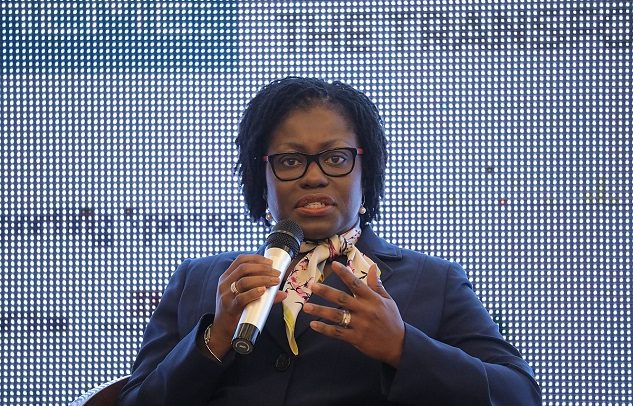ELSIE ADDO Awadzi
ELSIE ADDO Awadzi, Second Deputy Governor of the Bank of Ghana says her outfit expects banks and SDIs to continue to support the Ghanaian economy through reasonably-priced credit delivered in a prudent manner.
Mrs Awadzi, who was speaking at Second Anniversary Celebration of the Association of Ghana Industries (AGI) Women in Business Initiative recently in Accra, said banks must also promote gender equity in their lending and other operations and help support the transition to a greener economy, guided by the Sustainable Banking Principles launched in November 2019 by the Bank of Ghana, the Ghana Association of Bankers, and the Environmental Protection Agency.
Commenting on the theme for the occasion, “Women-Led Businesses: Exploring Finance Channels and Market Access for Growth” she said “We expect banks to deploy technology and strategic partnerships to promote access to finance for all segments of our economy, including women-owned businesses, through innovative products, services, and delivery channels.”
“Women-owned and women-led businesses must also embrace digital financial services provided by banks to help formalise payments for their goods and services so as to help them build the relevant banking history needed to access critical financing for their businesses.
“The Bank of Ghana remains committed to promoting a policy and regulatory environment that supports inclusive and broad-based economic growth where all economic actors including women entrepreneurs, are able to innovate and access appropriate forms of financing and at cost-effective rates to help launch, grow, and sustain their businesses,” she added.
Congratulating the AGI-Women in Business initiative on its second anniversary, she said “You are only just starting and your work is cut out for you in the area of advocacy, providing dialogue opportunities for awareness creation for all stakeholders, and supporting your members to step up to opportunities available as you help to promote more opportunities for women-owned and women-led businesses.”
Banks provided new loans in the total amount of GHC 27,850,500,963.01 from March to December 2020 to sectors of the economy like the pharmaceuticals industry and the textiles and garments industry that produced PPEs that were critical in helping to fight the pandemic, and helped to accelerate the recovery of our economy from the initial downturn.
“Furthermore, women entrepreneurs and business leaders must overcome their risk aversion for seeking financing from the financial market, and confidently take advantage of opportunities that exist to tap into appropriate sources of financing for their businesses. For example, it turns out that while women entrepreneurs tend to be more prudent and responsible borrowers and actually tend to pay back their loans and on time, they are often afraid to borrow the amounts of money their businesses need even when they can afford to pay back. When women do not ask enough for financial support, they do not receive what their businesses need, and this hampers the growth and survival of their businesses.”
On the part of banks, SDIs and other financial services providers, she said there was the need to understand the women’s market to specifically tailor products that work for them. “Women entrepreneurs form a significant and viable unique market that needs to be understood and serviced to the benefit of all.”
BY Samuel Boadi


